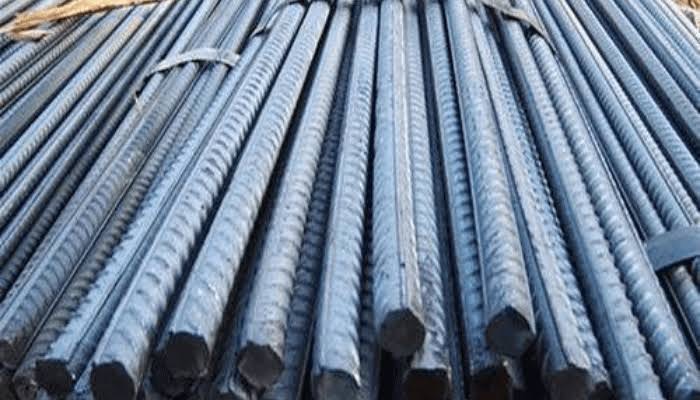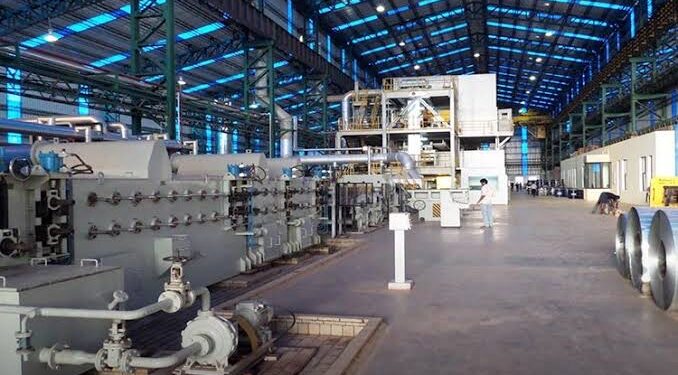Indian steel maker, Aarti is exiting Nigeria’s manufacturing sector, joining a long list of companies exiting the country due to economic hardship.
The Ogun State-based steel maker is already up for sale, with major players bidding between $50 million and $100 million in unconfirmed bids.
The steel maker’s exit is due to a combination of factors, particularly high debt levels, difficult economic times, currency fluctuations, rising inflation, and high energy costs, a source told Journalists on condition of anonymity.
“We are aware that Aarti Steel Nigeria is up for sale, but we have not yet made a bid,” said a trusted source at one of the bidding companies who was not authorized to comment on the matter.
African Industries and Bharti Ltd have submitted offers to buy the Indian steelmaker for between $50 million and $100 million, the people said.

The process is expected to be completed within a few months. Another source said the company had invited investors to submit their profiles and the company management wanted to hand over Aarti to a reliable investor.
This will be the sixth company to exit Nigeria in the first half of 2024 after Microsoft Nigeria, Total Energies Nigeria, PZ Cussons Nigeria PLC, Kimberly-Clark Nigeria, and Diageo PLC pulled out of Africa’s most populous country.
Aarti’s departure will further damage the country’s perception as an investment destination and its $1 trillion gross domestic product (GDP) target, experts told Journalists.
“The continued withdrawal of multinational companies from the economy is a cause for serious concern due to its impacts,” said Muda Yusuf, executive director of the Centre for Promotion of Private Enterprise.
“This will have a negative impact on jobs and the perception of the country as an investment destination,” Yusuf added.
In 2017, Aarti, invested $20-30 million to set up a 120,000-seat cold rolling mill in Ota, Ogun State. The mill is intended to supply downstream companies in Nigeria that use steel to manufacture household appliances, roofing shingles, metal furniture, file cabinets, tables, and chairs, among other products.
But investment no longer appears to play a major role.
G.C Tripathi, a director at Aarti Steel Nigeria, told Journalists that it was not aware that the company was for sale, noting that key management decisions were made in India, where the company is headquartered.
Tripathi, however, said the company was trying to get more funding and bank commitments to ramp up production.
But a company executive confirmed to Journalists in March that the company was looking for investors. The official said the company’s debt load was high and suppliers were worried about missing time and time again delivery deadlines.
“We are seeking a lifeline,” the official told one of our reporters. Sequential growth in the base metals, steel manufacturing subsector slowed to 0.57 percent in the first quarter of 2024 from 1.1 percent in the fourth quarter of 2023. On an annualized basis, it increased by 0.11 percentage points from 0.46% to 0.57%.
Manufacturers attribute the continued withdrawal of multinational companies to the worsening business environment and uncertainty in the country, which is sucking away profits and shareholders’ funds.
Segun Ajayi Kadir, Executive Director of the Association of Nigerian Manufacturers (MAN), said rising energy costs, volatility in the foreign exchange market, accelerating inflation, and growing uncertainty are hitting manufacturers in the country and hindering their growth.
He said the problems for manufacturers are further exacerbated by unsettled futures contracts by the Central Bank of Nigeria (CBN) which have caused several operators to lose billions of naira.
He noted that the steel industry is highly vulnerable to the adverse effects of these challenges and most operators in the industry are struggling to survive.
“High electricity prices, sluggish consumer spending, low access to cheap credit, high rate of unplanned stocks, and devaluation of the naira are hurting the country’s steel industry,” Ajayi-Kadir said.
Earlier, Oluyinka Kufile, former chairman of MAN Steel Group and CEO of Qualitec Industries, told reporters that “bad policies and lack of seriousness by government are ruining Nigerian steel companies.” He noted that only a few actors attend meetings of steel producers who are members of MAN.

































